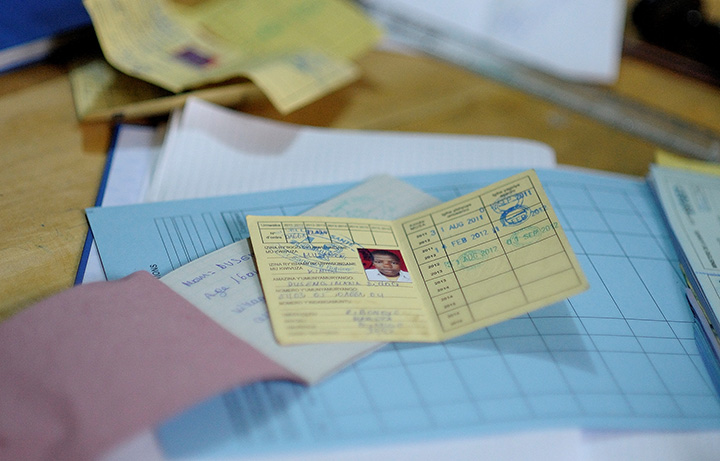Rwanda Improves Access to Care and Equity through Community-Based Health Insurance
Rwanda Improves Access to Care and Equity through Community-Based Health Insurance
![[Gisenyi District Hospital, Rwanda] {Photo Credit: Todd Shapera}](https://msh.org/wp-content/uploads/2016/05/shapera_041_patients-medical_web817.jpg)
Rwanda’s Community-Based Health Insurance (CBHI) scheme has greatly increased access to health care services and reduced the burden of health care costs, especially for the poor, according to a recent study from Management Sciences for Health (MSH) and the University of Rwanda-College of Medicine and Health Sciences-School of Public Health (UR-CMHS-SPH, or SPH), supported by The Rockefeller Foundation.
From 2012 to 2015, MSH and SPH researched barriers to CBHI enrollment and access to health care services, as well as improvements in financial protection from out-of-pocket health care costs. Study authors utilized two methodologies: a primary analysis involving a household survey designed specifically for this study and conducted in 2013; and a secondary analysis of Integrated Household Living Conditions Surveys (EICV) data, together with a review of previous studies.
Rwanda’s CBHI scheme, under leadership from the Government of Rwanda and its Ministry of Health, has been recognized internationally as a model for its success in advancing universal health coverage (UHC): the country expanded health insurance coverage from less than 7 percent of the CBHI target population in 2003, to 74 percent in 2013.
Access to care more equitable, financial protection improves
According to the joint MSH/SPH study, CBHI appears to have had a positive impact on health care utilization, with significant increases since 2003. Study authors note, however, that CBHI is only one factor: the Government of Rwanda has also made major improvements in the availability of services, increases in resources such as staffing and medicines, and quality of care. Performance-based financing has also contributed significantly to these improvements.
Data show that access to care has become much more equitable across the population in general, and is very equitable among CBHI members. CBHI has also resulted in substantially decreased out-of-pocket expenditures for members. Equity of out-of-pocket health expenditure also improved over time and is now almost the same for the rich and poor. The incidence of financial catastrophe resulting from out-of-pocket payments for health services also substantially decreased.
The 2013 CBHI survey indicated that enrolled members across the five income-based categories felt very positive about the scheme, with respondents stating that the benefits of CBHI membership included lower health care costs (97 percent) and better access to drugs (73 percent).
The MSH/SPH study also revealed some of the challenges. A graduated premium structure was introduced in July, 2011, so that better-off members would pay a little more. Many households felt that the costs of the premiums and copayments became less affordable. Some households did not join the program, but have reported that they struggle to pay their health care costs. More than half had at least once avoided seeking care when it was needed.
The ongoing efforts of the Government of Rwanda to ensure access and equity are important so that CBHI can continue to benefit poor Rwandans and build on the impressive achievements made to date.

Learning from Rwanda’s Successful CBHI Program
Other countries are examining Rwanda’s successful CBHI program as they develop their own UHC policies. To facilitate this, MSH and SPH documented the history of the CBHI program and identified key lessons learned in its development and implementation, including the importance of good financial management.
MSH has provided technical support to the Ministry of Health for its CBHI program for several years, and continues to provide this support to the Rwanda Social Security Board (RSSB), who took over the CBHI program in July 2015. This support is currently provided through MSH’s USAID-funded Rwanda Health System Strengthening Activity.
Through ongoing research into the functioning and impact of CBHI, Rwanda and other countries can continue to learn from this innovative and important scheme. For more information about the study methodology and results, please see the technical briefs and reports:
- Technical Brief: The Impact of Community-Based Health Insurance on Access to Care and Equity in Rwanda
- Technical Brief: The Development of Community-Based Health Insurance in Rwanda – Experiences and Lessons
- Technical Brief: Improving the Financial Management of Rwanda’s Community-Based Health Insurance Scheme
- Report: The Impact of Community-Based Health Insurance on Access to Care and Equity in Rwanda
- Report: The Development of Community-Based Health Insurance in Rwanda: Experiences and Lessons